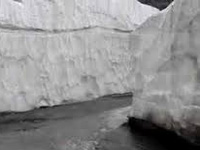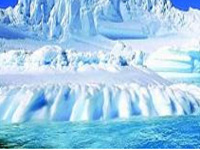Alaska sees record temperatures in heatwave
An "all-time high" temperature record has been set in the US state of Alaska, despite much of the country sitting in the Arctic circle. Temperatures peaked at 32.22 Celsius (90F) on 4 July at an airport
An "all-time high" temperature record has been set in the US state of Alaska, despite much of the country sitting in the Arctic circle. Temperatures peaked at 32.22 Celsius (90F) on 4 July at an airport
<p>Projected future trends in water availability are associated with large uncertainties in many regions of the globe. In mountain areas with complex topography, climate models have often limited capabilities

Glaciers in the Himalayan region are retreating following climate change which can lead to water scarcity for the people living downstream areas. The depleting glaciers can trigger the Glacial Lake Outburst
The first decade of the twenty-first century has not been a good one for the planet's climate. Of the 15 warmest years on record, 14 have occurred since 2000. Rising global temperatures have also made
In yet another sobering sign that climate change is drastically altering our planet, National Geographic has updated its "Atlas of the World" in what it calls "one of the most striking changes in the publication's

A worldwide study has revealed that during 2001 to 2010, glaciers lost ice at an alarming two to three times the average for the 20th century. Such is the scale of ice loss that the scientists predict
It turns out that glaciers are melting faster than ever. Scientists have compiled worldwide data on glacier changes for more than 120 years and have found that in the first decade of the 21st century,
Following the post of my colleague, Dana Nuccitelli on misreporting of ice trends, this article is a timely guest post by Neven Acropolis who runs the Arctic Sea Ice blog. “After the record smashing
<p>Observations show that glaciers around the world are in retreat and losing mass. Internationally coordinated for over a century, glacier monitoring activities provide an unprecedented dataset of glacier
The Arctic is warming at a rate almost twice the global average, making climate change’s effects there far more intense and rapid than any other ecosystem in the world. While nature photographs of polar
New data shows that in 2013 Arctic ice actually grew rather than retreating as climate change models had predicted. Far from proving climate change is a myth or that ice retreat has ended, as skeptics